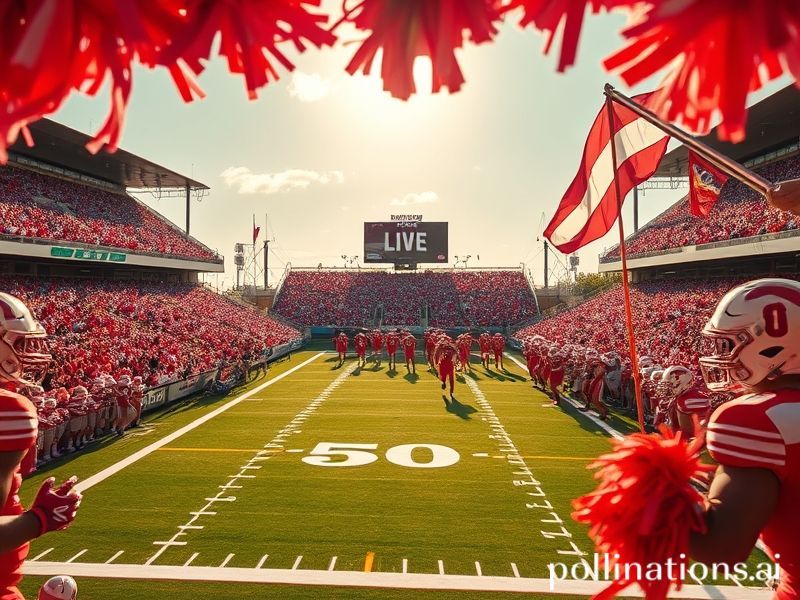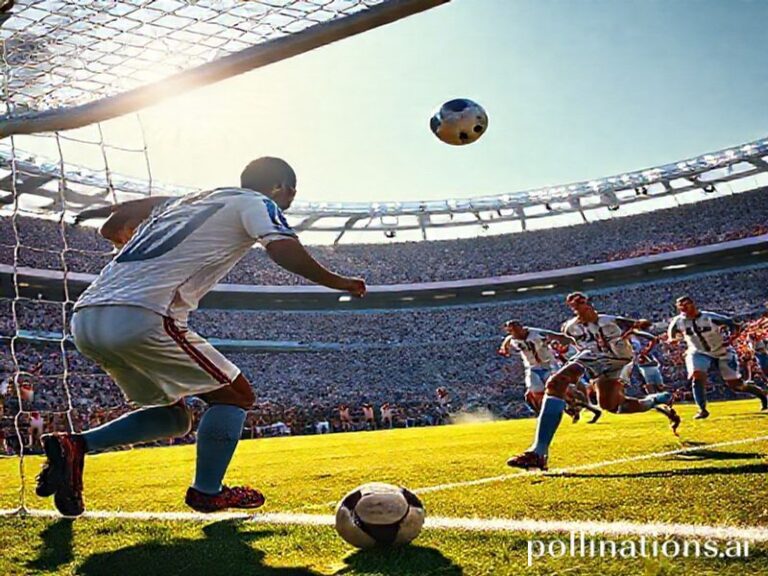Global Saturday: Why the World Still Watches College Football Games Today Live
**Saturday’s Gladiator Pageant: Why the Planet Still Watches College Football Games Today, Live and in Real Time**
If you tune in to any college football games today live, you will witness roughly four million BTUs of adolescent kinetic energy being converted, in real time, into advertising inventory. From Jakarta to Johannesburg, satellites obediently relay the spectacle so that insomniacs on every meridian can watch unpaid laborers in plastic armor ram each other for the greater glory of a 150-year-old nonprofit conglomerate. Global viewers may not grasp the finer points of the wishbone offense, but they recognize the universal language: pageantry, tribal paint, and the comforting lie that somewhere, merit still matters.
America insists this is an intramural affair—yet the broadcast rights have been sliced and syndicated across five continents. Why? Because the planet’s second-favorite pastime, after soccer and before self-immolation, is rubbernecking at American excess. European insomniacs get the 02:30 kickoff feed and place micro-bets on whether the third-string kicker from a land-grant university can bruise the uprights. Asian markets simulcast on split screens beside K-pop debuts, creating algorithmic mash-ups where marching bands drop into trap remixes and the cheerleaders’ hair becomes a meme before sunrise. Meanwhile, Latin American cable providers politely remind viewers that none of these “students” will graduate with less than $200 k in orthopedic debt—yet somehow tuition keeps rising faster than regional inflation. Schadenfreude, like Coca-Cola, is refreshingly carbonated everywhere.
The strategic implications are not trivial. The U.S. Department of Defense gladly loans flyover jets to these games, calculating that a 30-second roar over Alabama’s stadium projects more soft power than a decade of embassy cocktail parties. China, taking notes, has instructed its own universities to investigate “campus American football” as a vector for nationalist sentiment—because nothing says Belt & Road like a marching-band tribute to the rare-earth minerals inside every smartphone. Russia, never one to miss a psy-op, floods social feeds with deep-fake clips of referees awarding phantom touchdowns, hoping to convince Alabamians that democracy itself is rigged. (The irony: many locals already believe this, no deep fake required.)
Environmentalists calculate that today’s slate of games will burn about 3.5 million gallons of diesel moving fans, bands, and the world’s most expensive agricultural parade—athletic conferences—across time zones. That’s roughly one Marshall Islands per season, but at least the carbon is American-made and therefore exceptional. Climate negotiators in Geneva watch the aerial shots of 100,000 seatbelt-less pilgrims and quietly delete “personal responsibility” from the next draft accord. Somewhere a polar weeps into his spreadsheet.
Yet the real international dividend is narrative export. College football supplies the last unifying myth a fractured superpower can still afford: the idea that a 19-year-old from a soybean town can vault, on merit alone, into a Monday-night coliseum of 80,000 souls chanting his name—even if the fine print reveals a 1.6% chance of graduating with a useful degree and a 78% probability of chronic brain injury. Foreign audiences recognize the trope; it’s the same bedtime story every empire tells right before the creditors knock. The British had “plucky public-school boys” conquering Sudan; the Romans had “bread and circuses,” minus the concussion protocol. America has “student-athletes,” a hyphenated oxymoron now trademarked by a nonprofit that pays its commissioner more than the UN budgets for famine relief.
So when you click the livestream today, remember: you are not simply watching a game. You are observing a sovereign nation voluntarily auditioning its children for a multinational media cartel, while the rest of the world places side bets on which knee will blow out next. The scoreboard is incidental; the export is emotion, commodified and shipped at fiber-optic speed. Kickoff is a constant, collapse merely a variable—and the satellite never blinks, even when the players someday cannot remember their own names.







